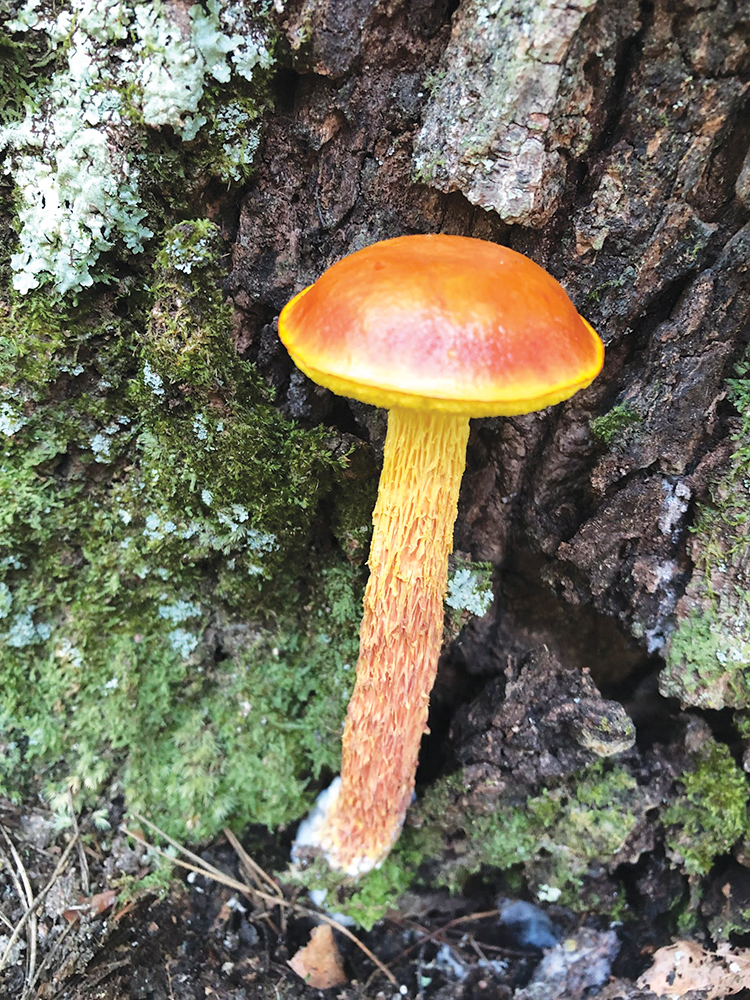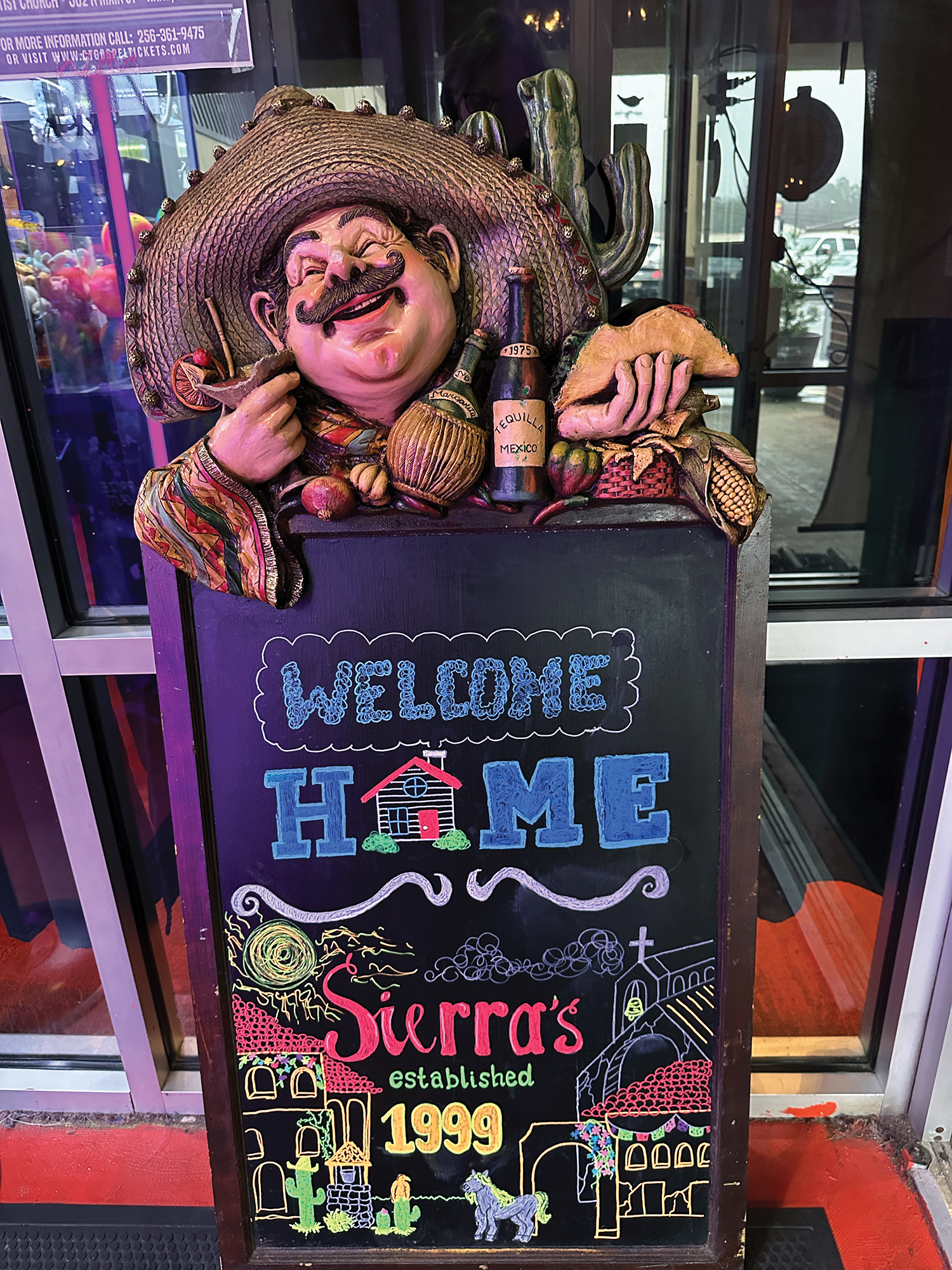When a spate of warm, rainy weather causes mushroom populations to mushroom in your landscape, there’s no cause to worry. It may, however, be time to find the sauté pan.
Mushrooms, along with molds and yeasts, belong to the fascinating kingdom of fungi. Unlike members of the plant kingdom, which make their own energy through photosynthesis, fungi gather sustenance directly from their surroundings through mycelium, the vegetative part of a fungal colony made up of thread-like structures that reside in, and absorb nutrients from, soil and other organic substrates (leaf litter, dead wood, etc.). As mycelium feed, they also recycle nutrients, promote decomposition, build soils and filter pollutants, plus they provide food for other creatures.
Most of this process occurs out of our sight until moist, humid weather conditions prompt fungi to go forth and multiply, which they do primarily by forming above-ground fruiting bodies (what we call mushrooms) that rise up to release fungal spores into the world. These ‘shrooms emerge, usually in sporadic flushes, in a diverse array of shapes, sizes and colors that spark another post-rain spate of activity — groups of humans dashing to the woods to admire and acquire wild mushrooms.
Anthoni Goodman, president of the Alabama Mushroom Society (alabamamushroomsociety.org and on Facebook), is one of those mushroom hunters. Goodman says this pastime is especially rewarding here in Alabama, home to thousands of different fungi species, including potentially dozens that have not yet been described.

Goodman, who lives in the Birmingham area, founded AMS in 2018 to help connect the state’s mycophiles (fungi lovers) and to educate the public about Alabama’s fabulous fungi resources. (AMS now has two active chapters, North Central in Birmingham and AMS South in Mobile.)
“Our members join with a host of interests, from fungal taxonomy and photography to cultivation and unique culinary adventures,” Goodman says. The organization’s 100-plus members work together toward the AMS mission to “garner interest in and facilitate education” of Alabama’s amazing fungi kingdom.
They do this through educational programs and other events, such as expert-led fungi foraging outings during which a hike can become a harvest of what Goodman described as “highly sought-after ingredients that can’t be bought in stores” — edible fungi.
Wild edible fungi (typically mushrooms) are healthful, nutritious and coveted by epicureans and chefs for their distinctive flavors, which range from earthy to woodsy, meaty to briny and nutty to smoky. However, because some wild mushrooms are toxic, foragers should always keep this cautionary adage in mind: “There are old mushroom eaters and bold mushroom eaters, but there are no old, bold mushroom eaters.”
“You should never eat things (berries, leaves, ‘shrooms, whatever) you find in the forest unless you are 100-percent confident in your identification,” Goodman says, adding that it’s also wise to not be “too bold about that confidence.”
Education is the key, but more risk-averse mushroom mavens have another option: home-grown mushrooms, which are the specialty of AMS board member Allen Carrol, co-owner of Fungi Farm LLC in Dadeville. Fungi Farm (fungifarmllc.com and on Facebook) offers high-quality wood-grown mushroom supplies and advice for home or commercial production, and they can be grown almost anywhere, from warehouses to shady yards to urban apartments. What’s more, growing mushrooms is good for the food web.
“If you’re growing mushrooms, all you’re really doing is composting with a very specific organism,” Carroll explains. While the byproduct of that composting is fresh mushrooms to eat, the process also builds soil, which can then be used to grow more vegetables and fruits and to strengthen the health and wellbeing of ecosystems.
Even when they pop up in our yards, mushrooms contribute to this cycle of life, so unless they pose a threat to curious pets or children, the best thing to do with a flush of mushrooms is leave them to their work. And, once you are 100 percent sure they’re safe to consume, maybe toss a few in the sauté pan.
February Tips
- Plant roses, trees, shrubs and hardy perennials.
- Repair gardening tools and equipment.
- Clean out and properly dispose of unwanted or outdated chemicals.
- Start seeds for early spring crops and flowers.
- Clean and refill bird feeders and baths.
- Celebrate Valentine’s Day with gifts for, and of, the garden.





